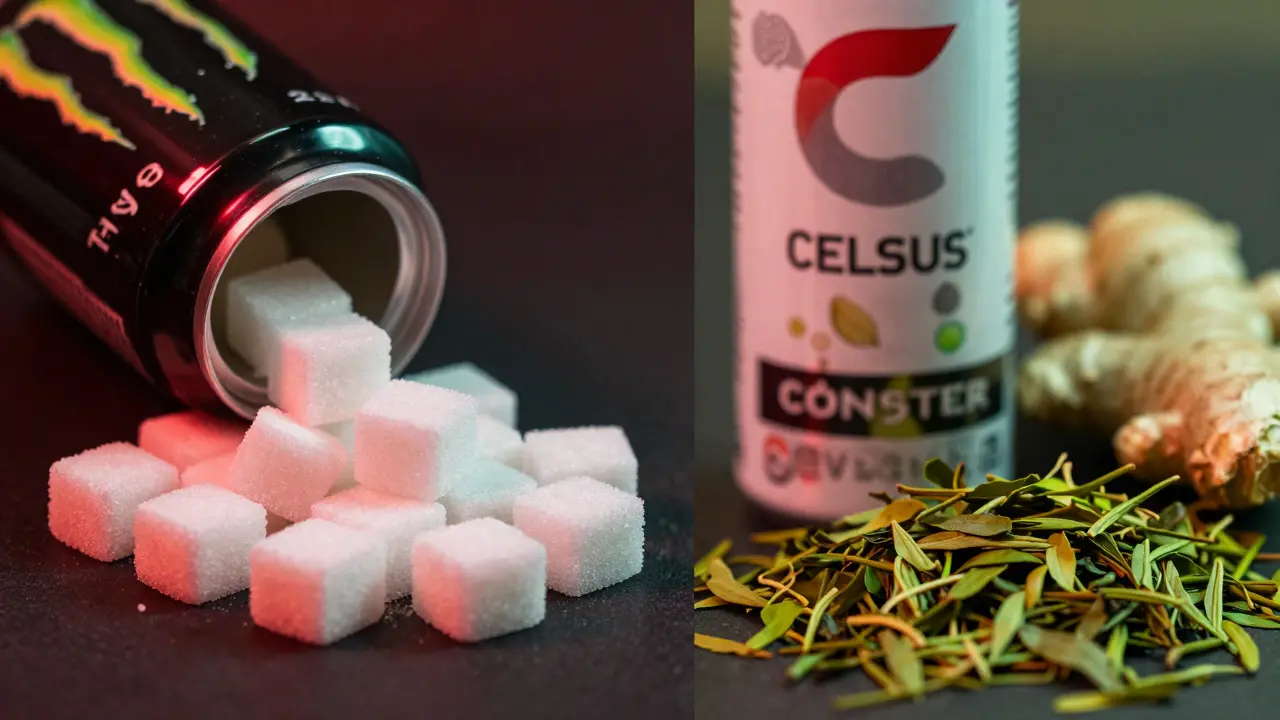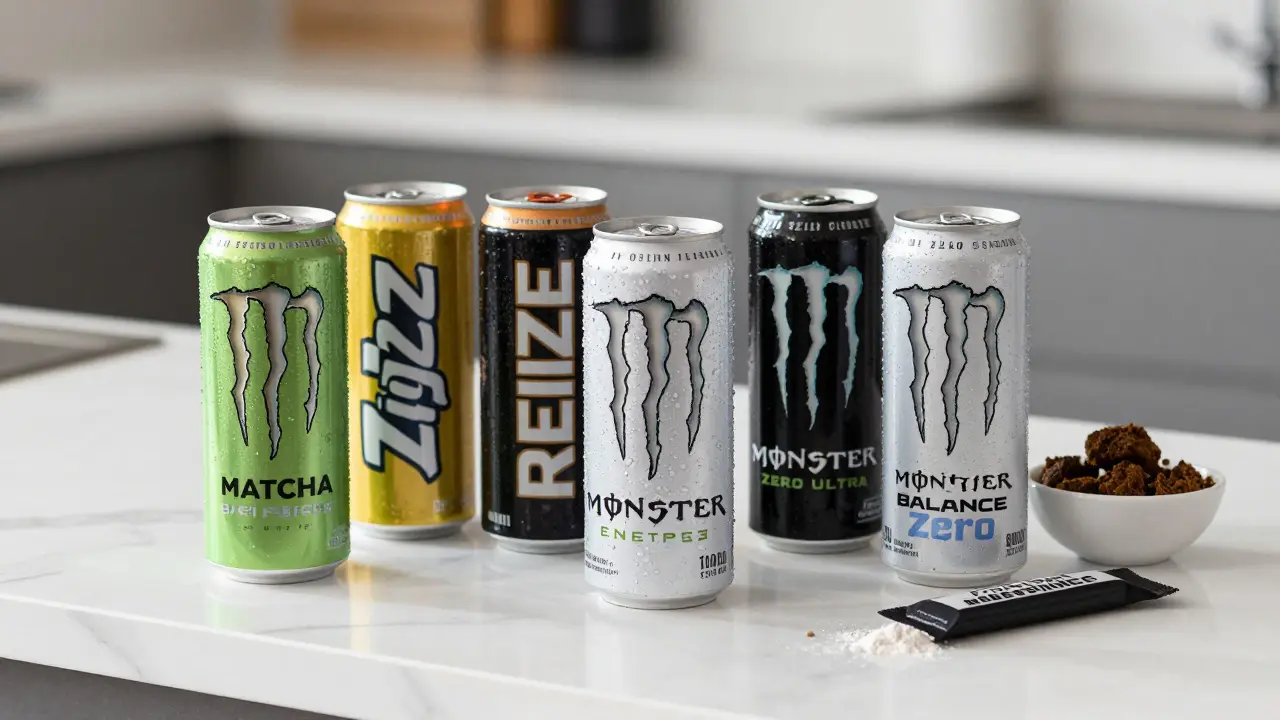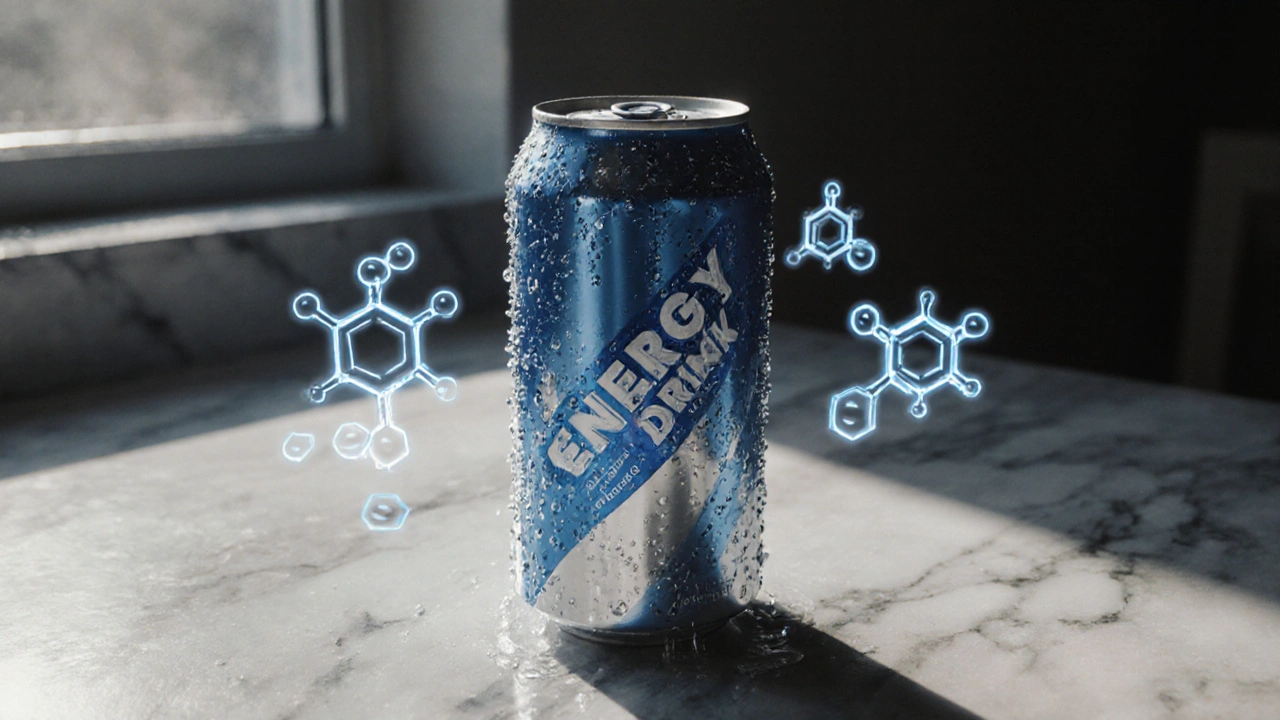Sugar-Free Energy Drinks: What Works, What Doesn't, and How to Choose
When you grab a sugar-free energy drink, a beverage designed to deliver stimulation without added sugars, often using artificial or natural sweeteners. Also known as zero-sugar energy drink, it's become the go-to for people trying to cut calories but still need a boost. But here’s the truth: just because it says "sugar-free" doesn’t mean it’s harmless. Many of these drinks swap sugar for chemical sweeteners like aspartame, sucralose, or acesulfame K—and those come with their own set of questions.
What you’re really buying isn’t just caffeine—it’s a mix of stimulants, amino acids, and additives. Caffeine, the primary active ingredient in most energy drinks, known for increasing alertness and temporarily blocking fatigue signals in the brain is the backbone, but it’s often paired with taurine, L-theanine, or B vitamins. These aren’t magic bullets. Some studies show taurine can help with focus, but others warn about long-term effects when combined with high caffeine doses. And while artificial sweeteners, non-nutritive substances used to mimic sugar’s taste without calories, commonly found in sugar-free energy drinks are approved by regulators, newer research suggests they may still affect gut health, insulin response, and even cravings. You’re not just avoiding sugar—you’re trading one set of risks for another.
Not all sugar-free energy drinks are the same. Some are loaded with more caffeine than a cup of coffee, while others keep it mild. Some use natural flavors and no preservatives; others are packed with synthetic additives you can’t pronounce. The sugar-free energy drink market is full of marketing hype, but real answers come from looking at the label—not the slogan. What matters is the total caffeine, the type of sweetener, and whether you’re drinking it for a quick pick-me-up or as a daily habit.
If you’re trying to avoid crashes, reduce sugar intake, or manage energy levels without the spike-and-fall cycle, you’re not alone. But the best choice isn’t the one with the flashiest packaging or the biggest brand name. It’s the one with the cleanest ingredient list and the right dose for your body. Below, you’ll find real reviews, science-backed breakdowns, and honest takes on what’s actually worth drinking—and what’s just another sugar-free trap.
Celsius markets itself as a healthy energy drink, but is it truly the best choice? We break down the ingredients, compare it to competitors, and explain what science says about its health impact. Find out if Celsius is right for you.
Find out which energy drink has the lowest calories in 2026. Compare top 5 zero-calorie options, their ingredients, caffeine levels, and which ones actually support energy without crashes.
Ghost Energy Drinks are popular for their zero-sugar formula and high caffeine content, but daily use may lead to heart strain, sleep disruption, and dependency. Here's what science says about the real risks.
Zero sugar energy drinks may seem healthier, but they still contain high caffeine, artificial sweeteners, and acid that can harm sleep, teeth, and metabolism. Here’s what science says about their real risks.




